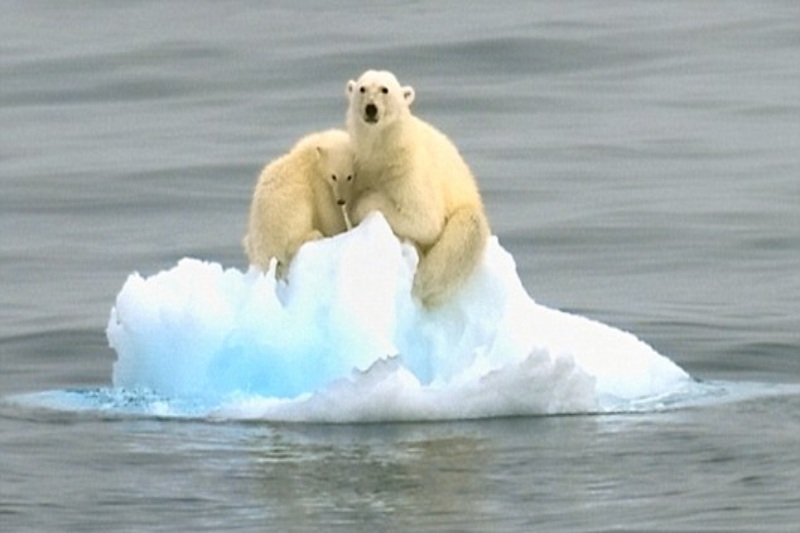This Tragic Picture Shows a Polar Bear Dozing Off on a Little Iceberg Drifting in the Arctic Waters

A baby polar bear is shown in a heartbreaking photo resting on the melting remnants of a small, floating iceberg.
This view was taken by amateur British photographer Nima Sarikhani off the Norwegian archipelago of Svalbard, which is located around 500 miles (800 kilometers) from the North Pole, deep within the Arctic Circle. This year’s Wildlife Photographer of the Year People’s Choice Award went to the picture.
Sarikhani’s expedition ship turned and headed southeast toward some sea ice after three days of frantic scouring through dense fog for polar bears (Ursus maritimus). There, a youngster and an older male polar bear were sighted by the team. The younger bear, just before midnight, hopped upon a tiny iceberg and made himself a bed with his paws before nodding off while the ship hovered near the animals.
“This photograph has stirred strong emotions in many of those who have seen it,” Sarikhani said in a statement shared.
After a panel of judges and the Natural History Museum in London selected 25 photographs for the competition’s shortlist, the public chose “Ice Bed” as the winner.
Director of the Natural History Museum Douglas Gurr said in a statement, “We can see the beauty and fragility of our planet because of Nima’s heartbreaking and poignant image.” “His thought-provoking image is a stark reminder of the integral bond between an animal and its habitat and serves as a visual representation of the detrimental impacts of climate warming and habitat loss.”
Since these animals need on sea ice to survive, rising temperatures are thought to be the biggest threat to polar bear survival in the wild. The International Union for Conservation of Nature Red List of Threatened Species estimates that there are just 26,000 polar bears left in the wild, and they are thought to be in danger of going extinct.
“Whilst climate change is the biggest challenge we face, I hope that this photograph also inspires hope,” Sarikhani said. “There is still time to fix the mess we have caused.”
The winning photo will be shown online and at the Natural History Museum’s Wildlife Photographer of the Year exhibition through June 30 along with four more “highly commended” photos.